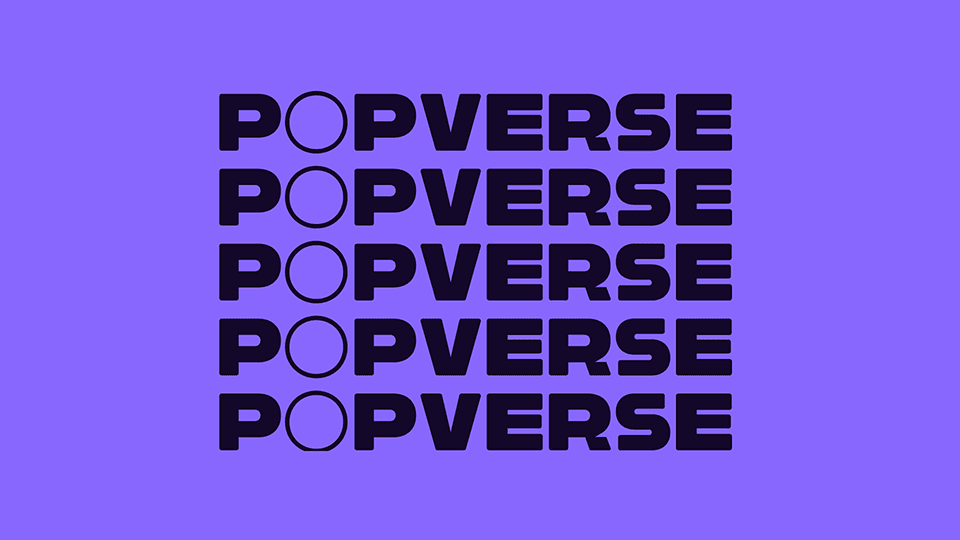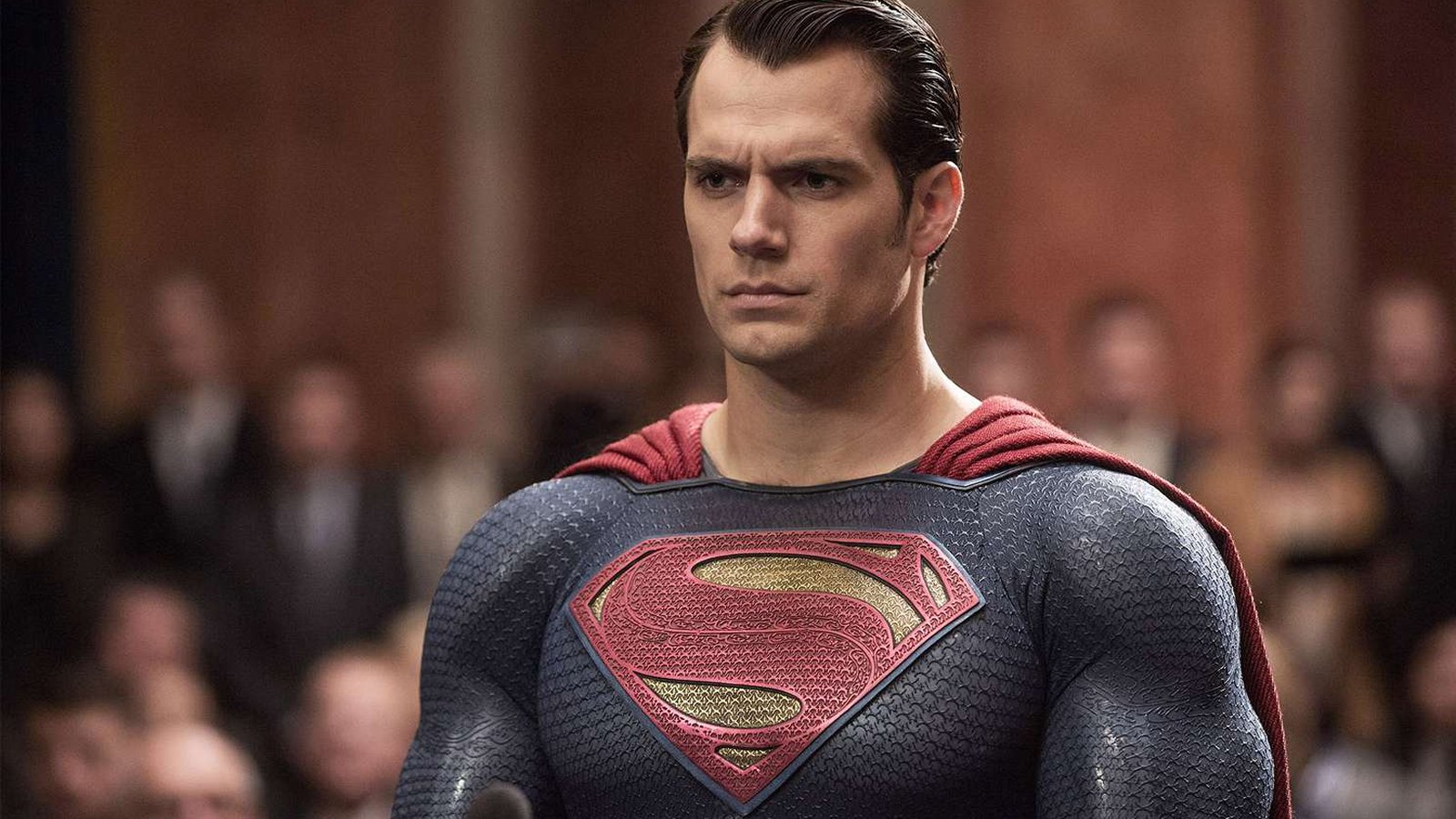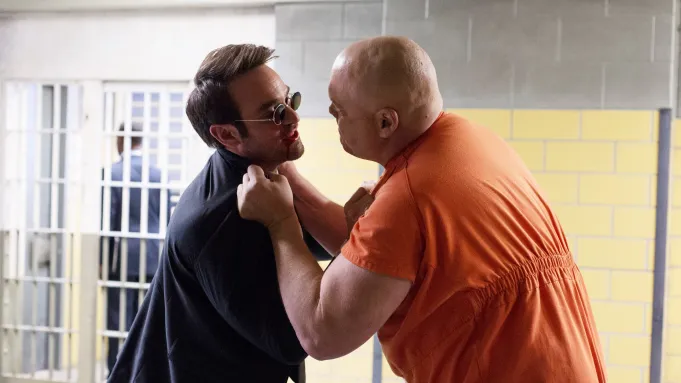If you click on a link and make a purchase we may receive a small commission. Read our editorial policy.
Azrael, DC’s angel of vengeance, becomes a man of peace in Watters & Cizmesjia series
Sword of Azrael’s Dan Watters & Nikola Čižmešija talk Jean-Paul Valley’s faith… and theirs

DC’s Jean-Paul Valley has been many things in the 30 years of his existence. He’s been an avenging angel, an Arrowverse vigilante, and a brainwashed cultist. Heck, he’s even been the G-D- Batman. But of all the mantles Azrael has taken on, he’s never been a man of peace. Until now.

In the Sword of Azrael, DC’s latest miniseries to focus on the titular character, Jean-Paul Valley has renounced his life of bloodlust and withdrawn to a remote monastery. Ahead of the comic’s first issue, PopVerse spoke to series artist Nikola Čižmešija and series writer Dan Watters about Azrael’s journey toward peace… and the violence that won’t leave him. Read on for more.
Popverse: Nikola, tell me about creating the monastery on Ioúdas Island, where Jean-Paul is spending his days. What inspired you? What emotions do you want the scenery to invoke in a reader?
Nikola Čižmešija: Our monastery in the comic was inspired by monasteries of Mount Athos in Greece. Dan shared some ideas with me and I immediately fell in love with the image of a lonely monastery on the edge of a cliff, surrounded by sea. Unfortunately, I've never been to Greece, but I visited some lovely islands and cities on the coastline of my country, Croatia. From what I've seen, they invoke a similar feeling of peace and relaxation. So that was my main inspiration, to make the readers feel the sea breeze as they were going through the pages.
You’ve definitely succeeded in doing that. Dan, Jean-Paul starts off this comic by reciting Catholic saints that have been killed in horrific ways. Why are they on his mind so much?
Dan Watters: He’s wondering that too! Pain is a huge part of the imagery and ethos of Catholicism, and as someone who has both endured and inflicted more than his share, this is a big thing playing on his mind. Is it a path to redemption, or a cycle without meaning? Or could the latter even become the former? That’s kind of what he’s going to be grappling with over the course of this story. While hitting things with a big flaming sword.
And here is a preview of Sword of Azarael #1
Čižmešija: I was raised in a Catholic family, so I'm no stranger to the subject [laughs]. Apart from that, a big help for coming up with the imagery was my education at college. I majored in art history, so classes like Iconography and Gothic Art and Architecture helped me convey Dan's words into visual form. Plus, Dan was really detailed with the script, so that made it easier as well!
In that script, Dan, you bring up the Christian mystic Margery Kempe. Who is Kempe, and what does she have to do with Azrael?
Watters: Margery Kempe was an English mystic who dictated the earliest autobiography in the English language we know of. She had visions and conversations with God – and with demons, who even tried to drive her to suicide. She’d almost certainly have been considered mentally ill in today’s world, but in hers, she became a preacher, traveled the world, and was heard – and is remembered – in a way that she certainly wouldn’t have been otherwise. The idea that she took something so potentially dark, and through faith and will transformed it into something else, is really interesting to me. I thought it’d be very interesting to Jean-Paul, too. There are definitely some elements that rhyme there with his story so far.
Nikola, since we’re on the subject of inner darkness, one of the (many) interesting things this comic does is split Jean-Paul and Azrael into different personalities. How do you convey this in how you draw the characters?
Čižmešija: In my eyes, I see Jean-Paul and Azrael as Yin and Yang. With my take on the character, I'm trying to make Jean-Paul a gentle person. He should be smiling every time he gets a chance, but he's also no stranger to conflict and defending people. While drawing him for the first time in our short Batman: Urban Legends run, I discovered that glasses are also a great way to act out emotions by showing and hiding the eyes. As for Azrael, he is much more aggressive and dark. So when he does come out, to me it's like he stops being a man and becomes more of a force, an instrument of God. He becomes more firm and fiery.
Here are the four covers for Sword of Azrael #1:
Watters: More than anything, Jean-Paul wants to be a good man. He hasn’t hidden himself from the world because he’s afraid of it, but because he’s afraid of himself – of Azrael – and what happens when he spirals out of control, as he has a nasty habit of doing.
Alright, I want to briefly take a step back from the story and talk about this book's creation. Nikola, what does your collaboration with colorist Marissa Louise look like? What do Marissa's colors bring to the book?
Čižmešija: She's my dancing partner! I love working with her and every new page is a joy! We talked about our inspirations and brainstormed some references to find the visual direction for this book before starting it, and I think we nailed it. I have a few notes here and there with how I imagined a certain scene but, other than that, it's like she's reading my mind. What do Marissa's colors bring to the book? Magic! They complement the mood and elevate the atmosphere of the page to its highest potential.
Here are the Sword of Azrael #2 covers:
What a lovely thing to say. Dan, on a similar note, talk to me about working with letterer Hassan Otsmane-Elhaou. What about Hass's work elevates Sword of Azrael?
Watters: Hass is one of the most inventive letterers in the business, something which a book like this honestly needs. There’s a lot of interplay between Azrael’s voice and Jean-Paul’s – overlapping captions, enochian symbols in balloons, all sorts of stuff – so it’s definitely a relief when writing them to know there’s someone there who will enjoy those sort of ideas, rather than drive to my house and throttle me.
[Laughs] Fair enough. Now, let's get back to the story. Nikola, without spoiling anything, I'll say that Azrael does not escape his past. Destiny, maybe even doom, is a big theme in this book. Would you call Jean-Paul a doomed character? And if so, how does that affect how you're visually telling his story?
Čižmešija: Jean-Paul is a cursed character. He never wanted to be Azrael and go down the path of murder and violence. We took a lot of inspiration from the manga Berserk, so there is that. But there is always a way to find light in the darkness. For Jean-Paul, it's his faith and the will to be better. For this book, I started using heavier shadows compared to my previous work, in order to keep the light parts brighter and in the forefront.
I see. That’s great that you mention his faith, because this book is also largely about a crisis of faith. Dan, are you pulling from your personal experience? What about your thoughts on belief makes it into this comic?
Watters: Maybe my personal interest, rather than experience. I honestly didn’t realize how preoccupied I was with faith until I started writing regularly, and it kept becoming a theme in my work – here with Azrael, but also in books like Coffin Bound and Lucifer. I’m interested in where faith comes from, and the things it drives us to do and create. These are the filters through which we try and make sense of our world, and find beauty and meaning in it. Catholicism is the lens my upbringing gave me to look at that through, so I tend to gravitate there in the work, too.
Here is the three covers for Sword of Azrael #3:
Very interesting. Alright, this last question is for both of you. Let's say DC decides to greenlight an Azrael ongoing series after this miniseries concludes. What would you want it to look like? What pieces of this miniseries would you want to carry over into it?
Čižmešija: For me, it has to be the darker tone of the book. I don't know how much I can say without spoiling anything but definitely the darker tone. Again, we took a lot of inspiration from Berserk, so struggle is a big part of it; the demon inside Jean-Paul and the demons outside. Along with the darker tone, I'd want the message of Azrael to remain; that despite his inner demons and the 'cursed' nature of his character, there is always a shimmer of light inside, pushing him to be a better and truer version of himself.
Watters: I enjoy the hell out of working with Nikola, so more of that, please. And there’s plenty more to be done and explored with Azrael. He occupies a unique place in the DCU; there are a lot of different facets of faith – organized and otherwise – which he can be used to explore.
Or hit with a big flaming sword, depending on which side of the bed he’s gotten up on.
Sword of Azrael #1 (of 6) goes on sale on August 2.
If you like this, you'll love our recommended best DC Comics stories of all time.
Follow Popverse for upcoming event coverage and news
Find out how we conduct our review by reading our review policy
Let Popverse be your tour guide through the wilderness of pop culture
Sign in and let us help you find your new favorite thing.
















Comments
Want to join the discussion? Please activate your account first.
Visit Reedpop ID if you need to resend the confirmation email.